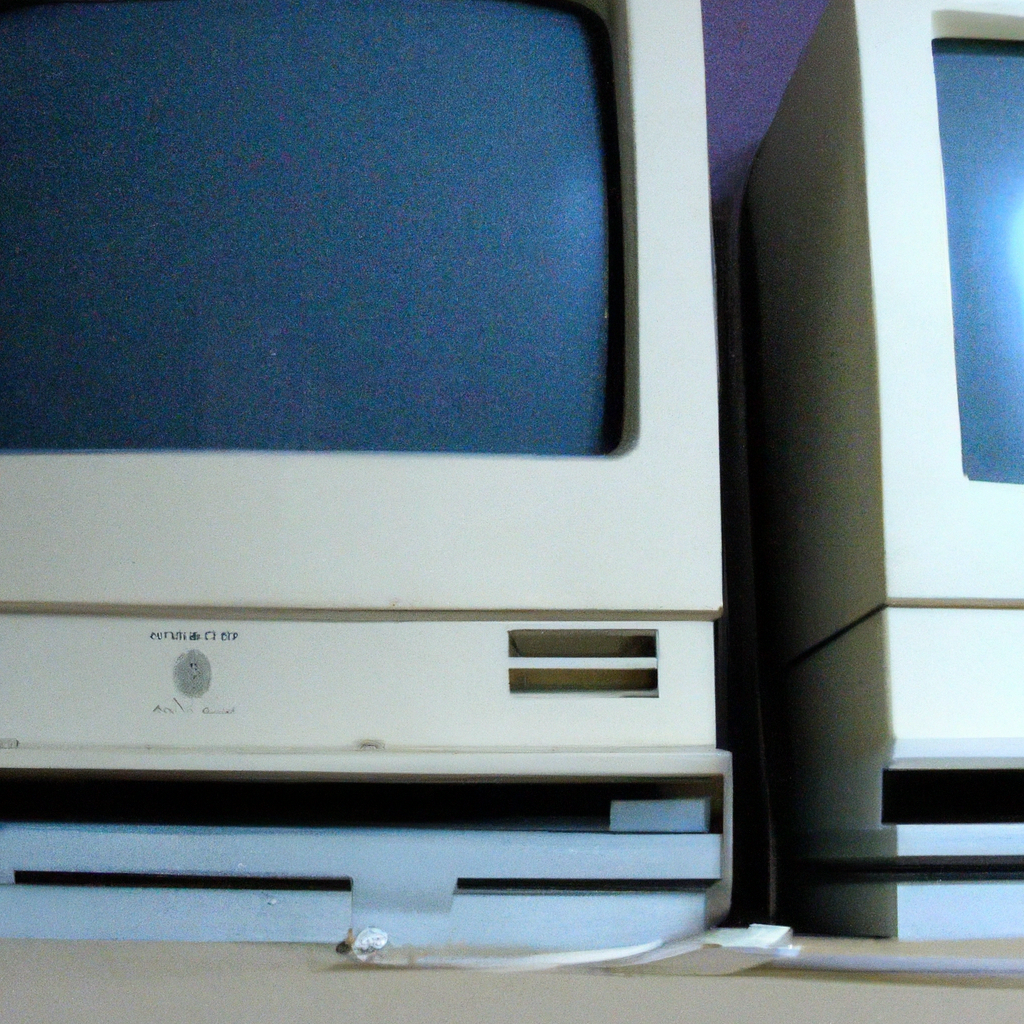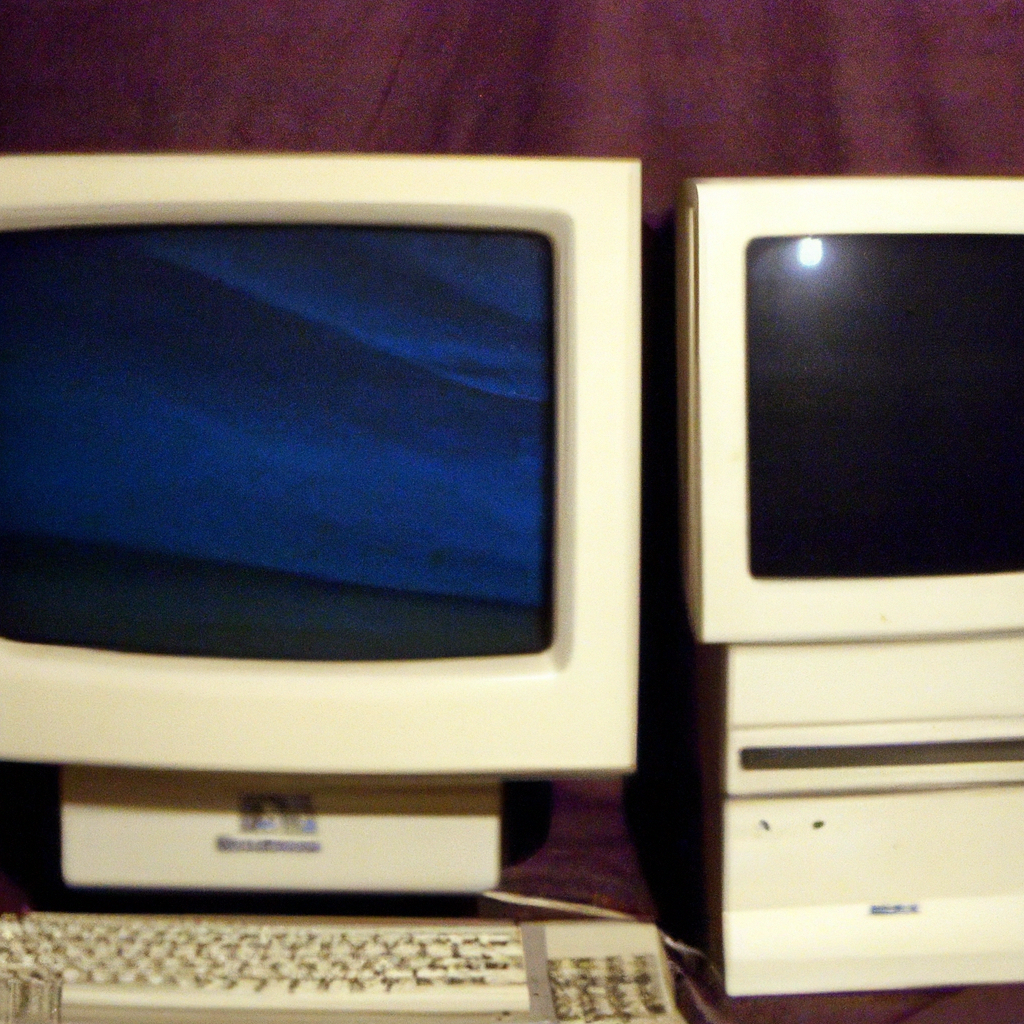Imagine this scenario: you’ve been using the same computer for years, faithfully powering through your tasks and providing endless entertainment. But lately, you’ve started to notice that it’s not as speedy as it used to be, and it struggles to keep up with the latest software updates. The question arises: is it time to bid farewell to your trusted companion and embrace the shiny allure of a new computer? In this article, we explore the age-old dilemma of when exactly a computer should be replaced, balancing the need for upgraded features with the sentimental value of an old faithful companion.

This image is property of pixabay.com.
Considerations for Replacing a Computer
When it comes to replacing a computer, there are several important factors to consider. From performance and speed to user satisfaction and budget constraints, each aspect plays a role in making an informed decision. Let’s delve into each consideration and explore how they can impact your computer replacement.
Performance and Speed
One of the first things to assess when contemplating replacing your computer is its performance and speed. An aging computer may start to feel sluggish and struggle to handle resource-intensive tasks. Evaluating the computer’s speed and performance is crucial to determine whether it can keep up with your current needs.
Additionally, it’s essential to consider your future performance requirements. Will you be using more demanding software or engaging in tasks that demand higher computing power? Anticipating your future needs helps ensure you don’t find yourself needing another upgrade sooner than expected.

This image is property of pixabay.com.
Software Compatibility
Technology evolves rapidly, and so does software. Before replacing your computer, it’s crucial to check its compatibility with the latest operating systems. Some older computers may not be able to run the newest software versions, limiting your access to the latest features and updates.
Assessing the ability of your computer to run the latest software is also vital. You don’t want to find yourself unable to install or operate essential programs due to compatibility issues. Incompatible software can hinder your productivity and limit your options.
Hardware Compatibility
Just as software evolves, so does hardware. When considering a replacement, you should evaluate the compatibility of your current computer with newly released hardware. This is particularly relevant if you require specialized hardware for your work or hobbies.
Determining if hardware upgrades are possible is another crucial factor. Some computers have limited upgrade options, making it difficult to improve performance or add new features. Outdated hardware can restrict your ability to fully utilize the capabilities of modern software.

This image is property of pixabay.com.
Repair and Maintenance Costs
Over time, computers may require repairs and maintenance to keep them running smoothly. Before making a decision, it’s worth calculating the cumulative repair and maintenance expenses incurred with your current computer. If the costs have been substantial or constant, it might be more cost-effective to invest in a new computer.
Additionally, consider the availability of replacement parts for your current computer. Older models might have limited access to components, making repairs more challenging and potentially more expensive. Factor in potential future repair and maintenance costs to get a complete picture of the financial implications.
Technological Advancements
Being up to date with the latest technological trends can help inform your decision to replace a computer. By staying informed, you can assess the impact of upcoming technological innovations on your computer’s functionality and performance. New features and advancements may offer improved productivity or enhanced user experiences, making a replacement enticing.
However, it’s crucial to evaluate the relevance of these new features to your individual needs. Not every advancement may be necessary or beneficial for your specific use case. Consider how the latest innovations align with your computer usage and determine if they justify the investment.

User Satisfaction
User satisfaction is a significant consideration when it comes to replacing a computer. Identifying any user experience issues with your current computer is essential. Are you experiencing frequent crashes or freezes? Is the computer’s performance hindering your productivity? Understanding the pain points can help determine if a replacement is necessary.
Additionally, consider the ergonomics and comfort of your current computer setup. A poorly designed keyboard or an uncomfortable chair can impact your overall user experience. Assessing how your computer setup affects your productivity and efficiency is crucial when considering a replacement.
Security
With the increasing threat of cyber threats and data breaches, assessing the security of your current computer is of utmost importance. Older computers may be more vulnerable to attacks due to outdated security measures. Evaluating the availability of security updates for your computer helps determine if you can continue to protect your data effectively.
Considering the importance of data protection is also vital. If you handle sensitive information or engage in online transactions, ensuring the security of your computer becomes even more critical. A replacement might be necessary to upgrade to a more secure system.

Environmental Impact
As society becomes more environmentally conscious, considering the environmental impact of your computer is a responsible choice. Evaluating the energy efficiency of your current computer helps determine how much power it consumes and its carbon footprint. Upgrading to a more energy-efficient computer can contribute to a greener lifestyle.
Assessing the environmental impact of older hardware is another significant factor. Some components in older computers may contain hazardous materials that can be harmful to the environment if not disposed of properly. Considering recycling and disposal options helps ensure responsible handling of your old computer.
Budget Constraints
Budget constraints are often a crucial factor when it comes to replacing a computer. Evaluating your financial situation and determining how much you’re willing or able to allocate towards a new computer is essential.
Consider the potential return on investment and weigh it against other financial priorities. If your current computer is severely impacting your productivity or hindering your ability to pursue certain opportunities, a replacement might be justified. However, if the performance issues are minimal and the financial burden is significant, exploring alternatives such as upgrades or refurbished computers could be worth considering.
Resale Value
When replacing a computer, assessing the potential resale value of your current machine can help offset the cost of a new one. Consider factors such as the age, condition, and specifications of your computer when evaluating its market value.
Timing is also crucial when reselling. Technology evolves rapidly, and delays in selling your old computer can lead to a decline in its value. Considering the market demand for used computers helps ensure you don’t miss the window of opportunity to receive a reasonable return on your investment.
In conclusion, replacing a computer involves careful consideration of various factors. From performance and speed to software and hardware compatibility, each element plays a role in determining when it’s time for an upgrade. By assessing repair and maintenance costs, staying informed about technological advancements, and considering user satisfaction, security, environmental impact, budget constraints, and resale value, you can make an informed decision that aligns with your needs and priorities.
